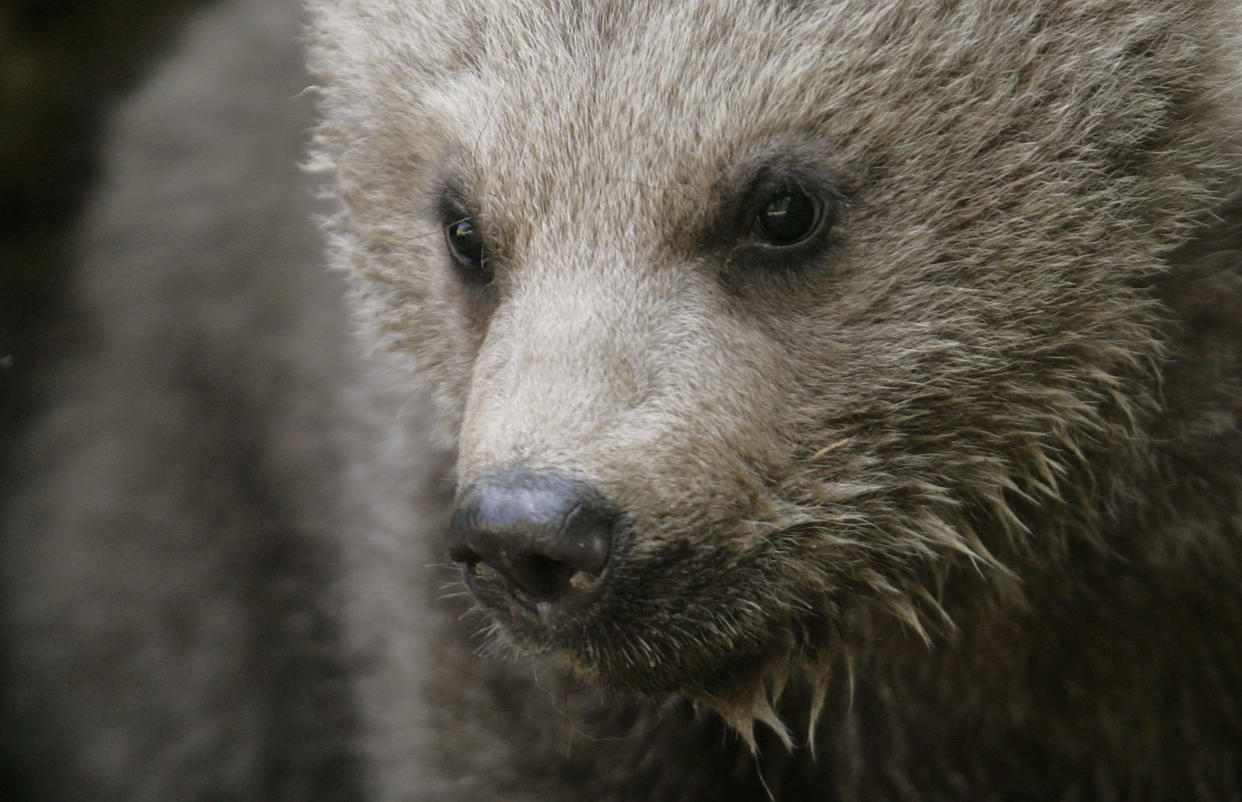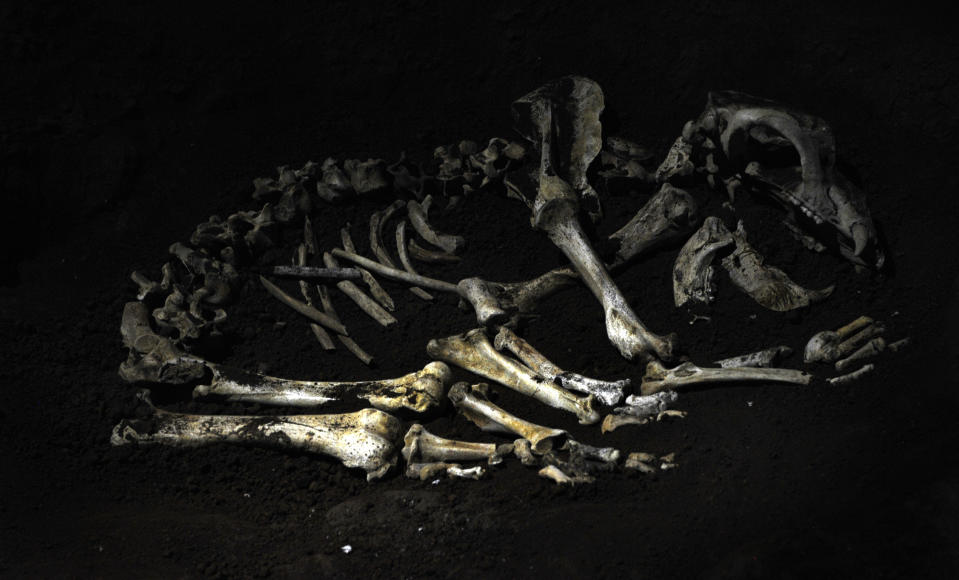Vegetarian cave bear was the first species killed off by man, research suggests

An ancient species of vegetarian bear once suspected of dying due to its diet may have been the first animal wiped out by man.
Cave bears roamed Europe centuries ago but started to decline in numbers around 50,000 years ago, finally disappearing 20,000 years ago.
It was believed that the bears, which were larger than today’s polar bears, died out because of their diet, perishing during an Ice Age after its food supplies were removed.
But new research suggests that the bears’ extinction actually coincided with the arrival of humans in Europe.

The research, published in the journal Science Reports, analysed DNA extracted from dozens of remains and suggests that the bears lost out to humans as they competed for food and places to live.
“It would be the first extinction in which humans were involved that we know of so far,” said co-author Professor Verena Schünemann, of the University of Zürich, according to The Times.
READ MORE
The study used genetic material from 59 cave bears collected from sites across Switzerland, Poland, France, Spain, Germany, Italy and Serbia.
“High dependence of cave bears on their birth caves may have created severe competition with Neanderthals, but especially with anatomically modern humans,” the study said.
A cooler climate could also have played a part in the bear’s extinction, the study said, but it was also likely affected by human activity.


